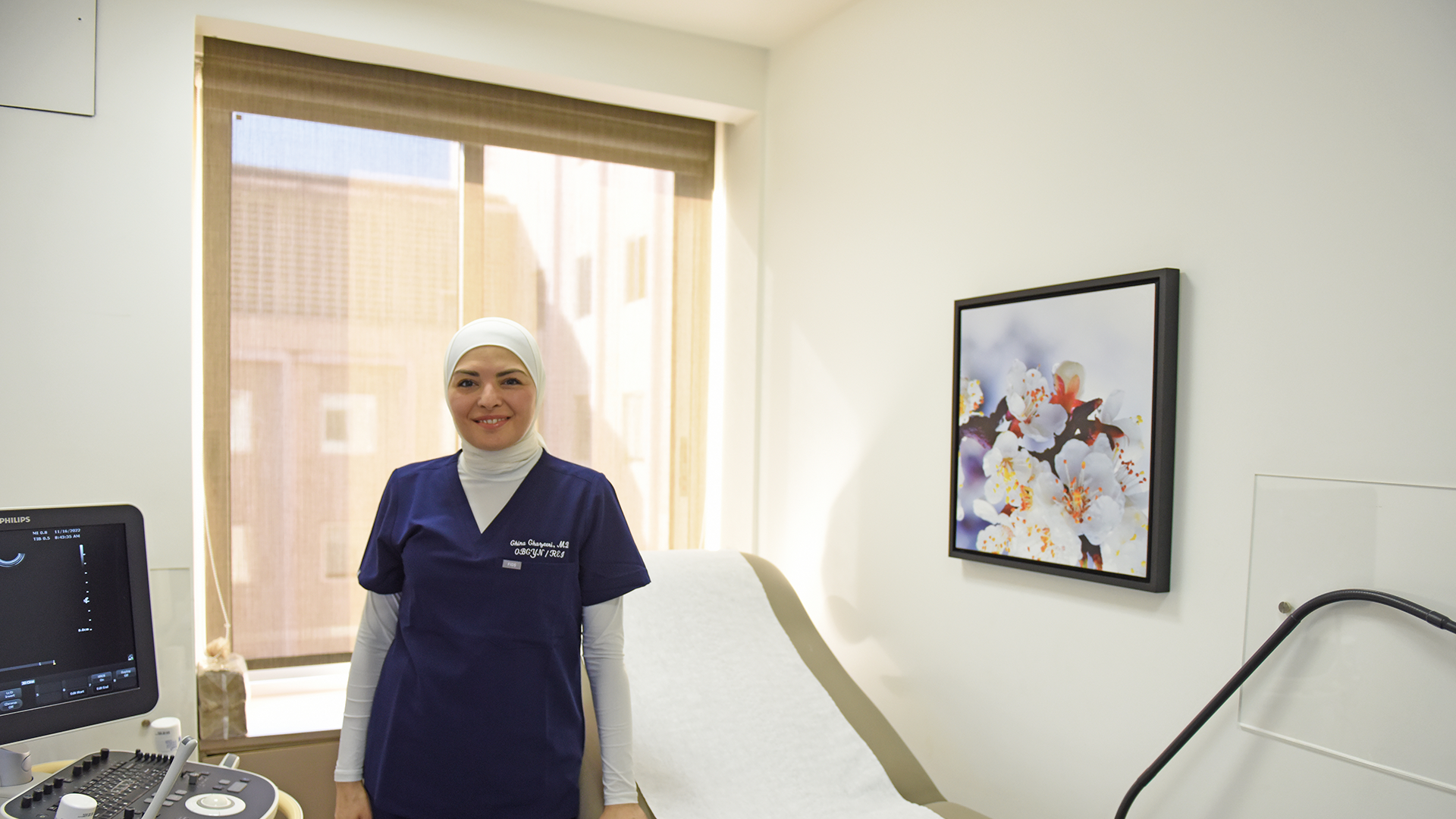
Check Up: Hopes and Dreams on Ice
Fall 2022
Survival rates for cancer have been increasing dramatically over the past half century, which means that many women and men go on to live long, healthy lives after successful treatment. Yet these therapies can have the devastating side effect of being “gonadotoxic,” meaning the radiation, chemotherapy, or other treatments may lead to infertility or a severe decrease in fertility. This is where the Fertility Preservation Program at the American University of Beirut Medical Center (AUBMC) comes in.
Program director Dr. Ghina Ghazeeri explains that giving patients the choice to undergo fertility preservation or to receive information about fertility is not just medical but also psychological. “The whole process of fertility preservation is when you give the patient the hope to survive,” says Ghazeeri. “I tell my patients that we both have a fight: I will fight my fight, and you will fight your fight. Fight your cancer, and I will help you get pregnant in the future. Using the eggs or sperm preserved is no longer the issue at hand, it is the option of not losing the dream of building a family.”
As one former patient explains, “Before starting my chemotherapy in 2019, Ghazeeri proposed the embryo freezing, since my partner was present with me, explaining the whole process from A to Z. From the moment she started to clarify the steps, I only saw advantages and big hopes knowing from that moment that my dream of becoming a mum one day can come true.”
In line with AUBMC’s mission to offer the highest standards of patient-centered care, and with fertility preservation gaining visibility, the program has grown considerably, from only 15 patients in 2016 to 112 patients last year.
The program is part of AUBMC’s Assisted Reproductive Technology Unit, which has been catering to people having fertility problems since 1993. However, with AUBMC being a referral and tertiary care center for oncology patients, the need to establish the Fertility Preservation Program was clear.
The program was established in 2016 to assess the needs of patients who are undergoing cancer treatment, patients with autoimmune and/or genetic disease with predisposition for decreased gamete reserve, and people who opt to delay childbearing for personal reasons and wish to electively preserve their fertility. The program offers a broad spectrum of fertility preservation options for men and women, such as egg or embryo freezing, sperm freezing, ovarian transposition, and gonadal shielding or preservation.
The focus at the Fertility Preservation Program is how best to support patients of all ages and with diverse conditions and personal situations with their fertility-related needs. For example, prepubescent patients cannot utilize egg or sperm freezing, but the program can still cater to their needs in different ways. This includes counseling young patients and their families about future fertility and, in some cases, moving the ovary out of harms way and then moving it back after successful treatment. “Two weeks ago, and in collaboration with a pediatric surgeon, we did a procedure on a six-year-old child where we transpositioned the ovary from the pelvis to the abdomen because the child was going to receive radiotherapy to the pelvic area. We had to relocate the ovary into the abdominal area and to the contralateral side so that it will not be in the field of the radiation,” Ghazeeri further explains.
As for women of childbearing age, the program conducts egg freezing, or what is known as oocyte cryopreservation. The process involves extracting the women’s eggs (oocytes) and freezing and storing them in order to preserve them for when the cancer patient completes her treatment and is ready to become pregnant. It can also be utilized by women who wish to put off childbearing for different personal or social reasons. “The whole issue of fertility preservation is that you are empowering women; a woman has power over her body, over when to get pregnant,” says Ghazeeri.
The program is also responding to the increasingly dire economic crisis Lebanon has been grappling with by establishing the Hope Fund to assist financially underprivileged patients who cannot afford the expenses of preserving their fertility. “Financial issues cannot take away from women the right to have a child, cannot deny a couple from building a family, and this is why we established the Hope Fund,” Ghazeeri explains.